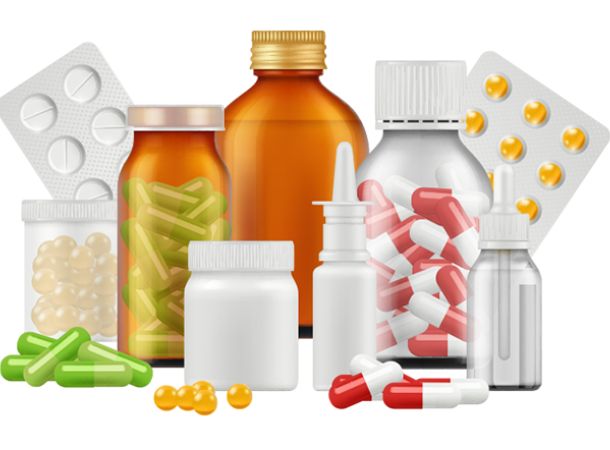The lifesciences sector plays a critical role in advancing healthcare, biotechnology, pharmaceuticals, and medical devices. Within this expansive field, wholesale distributors serve as an essential link between manufacturers and end-users such as healthcare providers, research facilities, and retail pharmacies. Lifescience wholesale distributors ensure that vital products reach their intended destinations efficiently, safely, and cost-effectively. This article explores the intricacies of the Lifesciences wholesale distribution industry, highlighting its significance, key players, operational challenges, and future trends.
The Role of Lifesciences Wholesale Distributors
Wholesale distributors in the lifescience sector act as intermediaries, bridging the gap between manufacturers and consumers. Their primary responsibilities include:
- Product Distribution:
- They distribute pharmaceuticals, laboratory equipment, diagnostic tools, medical devices, and biotechnology products to hospitals, clinics, and research institutions.
- Inventory Management:
- Distributors maintain inventory levels to ensure timely delivery of products, reducing lead times and preventing stockouts for healthcare providers.
- Regulatory Compliance:
- Handling sensitive and highly regulated products requires adherence to stringent guidelines, such as Good Distribution Practices (GDP) and FDA regulations.
- Cold Chain Management:
- Many lifescience products, such as vaccines and biologics, require specific temperature controls. Wholesale distributors employ advanced cold chain technologies to preserve product integrity.
- Market Access and Scalability:
- By leveraging established networks, distributors provide manufacturers with access to diverse markets, facilitating scalability and market penetration.
Key Players in the Lifescience Wholesale Distribution Sector
The lifescience wholesale distribution industry is dominated by major global players as well as specialized regional companies. Key organizations include:
- McKesson Corporation: A leading distributor of pharmaceuticals, medical supplies, and health information technology solutions.
- AmerisourceBergen: Focused on improving healthcare access, this company supports pharmaceutical distribution, specialty logistics, and global product sourcing.
- Cardinal Health: A powerhouse in medical and pharmaceutical distribution, Cardinal Health also offers data-driven supply chain solutions.
- Henry Schein: A prominent distributor in the dental and healthcare sectors, specializing in consumables and diagnostic equipment.
- Fresenius Medical Care: A global provider of dialysis products and services with a strong distribution network for medical devices.
Operational Challenges Faced by Lifescience Wholesale Distributors
Despite their critical role, wholesale distributors in the lifescience industry encounter various challenges:
- Regulatory Complexity:
- Compliance with global, regional, and local regulations, such as FDA, EMA, and WHO standards, can be daunting and resource-intensive.
- Cold Chain Logistics:
- Maintaining the cold chain for temperature-sensitive products requires advanced infrastructure, technology, and constant monitoring.
- Supply Chain Disruptions:
- Geopolitical tensions, pandemics, and natural disasters can disrupt supply chains, leading to product shortages and delays.
- Counterfeit Products:
- Ensuring the authenticity of products is vital, especially in an industry where counterfeit drugs and devices can jeopardize patient safety.
- Rising Costs:
- The costs associated with logistics, storage, and regulatory compliance are continuously increasing, putting pressure on distributors’ margins.
- Technological Integration:
- Adopting and integrating technologies like blockchain, IoT, and AI for better tracking, transparency, and efficiency can be challenging.
Technologies Shaping the Future of Lifescience Wholesale Distribution
Technology is revolutionizing the lifescience wholesale distribution industry, making operations more efficient and secure. Key advancements include:
- Blockchain Technology:
- Enhances transparency and traceability, helping distributors combat counterfeit products and ensure compliance.
- IoT-Enabled Cold Chain Solutions:
- IoT devices monitor and report real-time temperature, humidity, and location data to ensure product integrity during transit.
- Artificial Intelligence (AI):
- AI-driven analytics optimize inventory management, forecast demand, and identify potential disruptions in the supply chain.
- Robotic Process Automation (RPA):
- Automates repetitive tasks such as order processing and invoicing, reducing errors and operational costs.
- Data Analytics:
- Provides actionable insights into market trends, customer behavior, and operational efficiency, enabling distributors to make informed decisions.
Sustainability in Lifescience Wholesale Distribution
Sustainability is becoming a cornerstone in the lifescience wholesale distribution industry. Companies are adopting eco-friendly practices, such as:
- Green Packaging:
- Using biodegradable and recyclable materials for product packaging to reduce environmental impact.
- Energy-Efficient Warehouses:
- Incorporating renewable energy sources and energy-saving technologies in storage facilities.
- Optimized Transportation Routes:
- Leveraging data analytics to reduce fuel consumption and carbon emissions during product transit.
- Waste Management:
- Implementing strategies to minimize waste, especially for expired or unused pharmaceutical products.
The Economic Impact of Lifescience Wholesale Distributors
Lifescience wholesale distributors significantly contribute to the global economy. Their activities:
- Boost Healthcare Accessibility: By ensuring timely delivery of medical products, they enhance healthcare outcomes and support public health initiatives.
- Create Employment: The industry generates jobs across logistics, warehousing, regulatory compliance, and technology sectors.
- Facilitate Innovation: Distributors often collaborate with manufacturers to introduce new products and technologies to the market.
Future Trends in Lifescience Wholesale Distribution
The lifescience wholesale distribution industry is evolving rapidly, driven by technological advancements and changing market dynamics. Key trends include:
- Personalized Medicine:
- With the rise of personalized therapies, distributors must adapt to handle smaller, more frequent shipments.
- Globalization of Supply Chains:
- Expanding global networks to meet growing demand in emerging markets.
- Enhanced Cybersecurity:
- Strengthening digital infrastructure to protect sensitive data and ensure operational continuity.
- Collaborative Ecosystems:
- Building partnerships with manufacturers, healthcare providers, and technology companies to enhance efficiency and innovation.
Conclusion
Lifesciences Wholesale Distributors are indispensable to the healthcare ecosystem, ensuring that critical products reach those who need them most. Despite challenges such as regulatory compliance and supply chain disruptions, the industry continues to innovate, leveraging technology to improve efficiency and sustainability. As healthcare needs evolve and global markets expand, the role of lifescience wholesale distributors will only grow in importance, cementing their position as vital contributors to public health and economic development.
